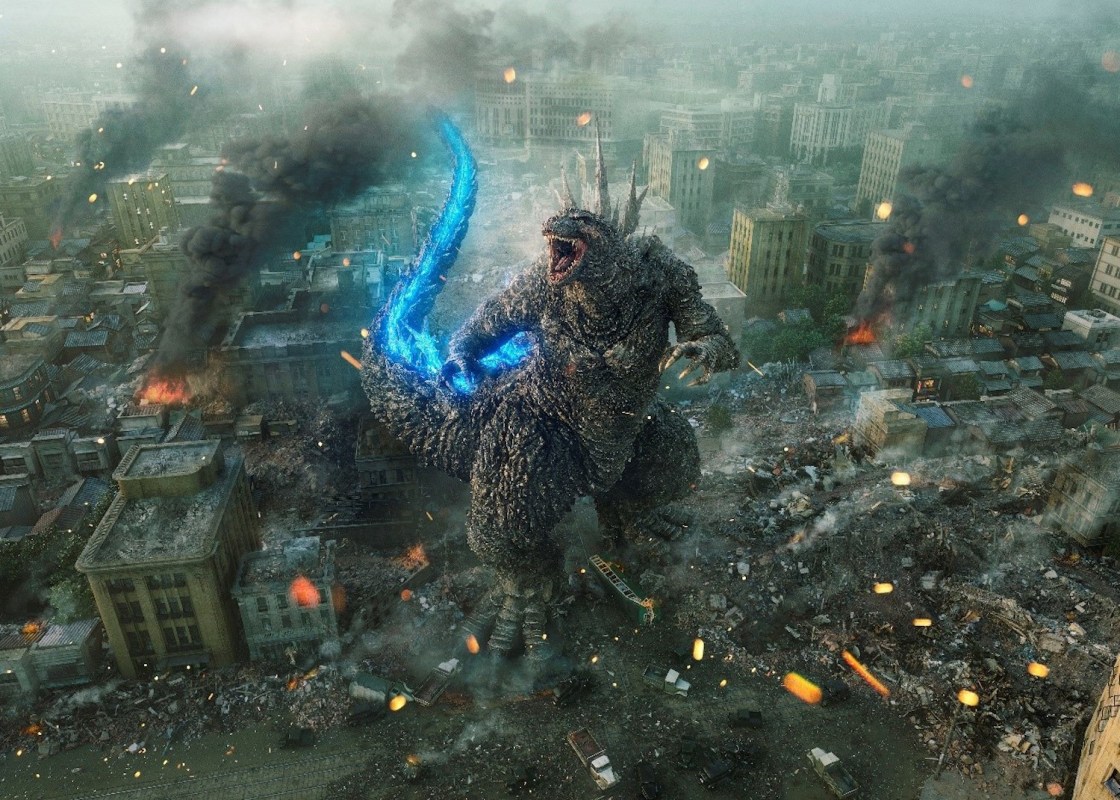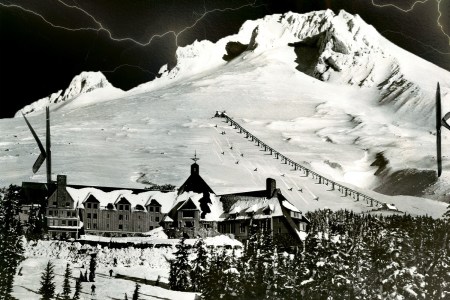As a critic and screenwriter of baby boomer vintage, I have been at the movie theater watching monsters walk the earth since Gorgo in 1961. I’ve seen Kongs on the World Trade Center, mechanical Kongs, and Godzilla vs. Kong where the winner changes with the country. I’ve seen Samuel Jackson fight behemoths in Vietnam and Matthew Broderick emerge a hero in Central Park. I’ve seen dozens more monsters of every make and description. But no monster film has ever had the sincere emotional impact of Godzilla Minus One, and none may change real world geopolitics — and the future of war — in quite the same way.
What makes G Minus One different?
The first key is that the film is set as World War 2 is ending, in a movie that is written by Japanese, for a Japanese audience, and acted all in Japanese, with subtitles. As a viewer, you are placed into the mindset of the Japanese people as they are losing that war. And not just losing, but returning home to see your city in rubble, your family dead, your nation broken, your personal honor lost, and with nothing to show except regret and survivor’s guilt.
You are living in the dust. Scrambling for modest tools of daily survival. And then comes…Godzilla.
Iconic Horror Movie Filming Locations You Can Actually Visit
Are you brave enough to stay at the hotel from “The Shining”?Scenes are given specific dates: December 1945, March 1946, March 1947. And Godzilla is no longer a silly actor in a rubber suit. Godzilla is now the symbol of soul-destroying evil, come again to literally crush the little dreams of thousands of everyday people. Godzilla is the tragic headlines we read in the news every day. It is the plague that runs through the herd; the bombs from above that can’t be stopped; the war lords who destroy the crop just before the harvest. The sadness that pours from the screen into the hearts of the audience is as real an emotional experience as any higher brow film has given in years. If G Minus One leads you to shed quiet tears in the dark, you are crying for every person everywhere who just wants a tiny piece of health and happiness for themselves and their family, and is run over by larger impersonal forces. This movie is for those crushed by “Godzillas” of every type and destruction.
Then the film contains a second message: a message that will inevitably rattle Japan and perhaps change the geopolitical balance of the world itself. G Minus One is a call to arms; a call to return to the military glory that so failed Japan in World War 2. In G Minus One the veterans who barely survived the War rally back to fight Godzilla. The navy captain comes out of retirement. The old ships and secret fighter jets are taken out of mothballs. The citizens who missed the War due to youth or age, rally too, like a veritable British civilian fleet at Dunkirk.
It is a call to Japanese arms at a time when China’s aggressiveness in the region — egged on by its own increasingly militaristic “Wolf Warrior” films — is seen as a rising threat to Japan, to the U.S., India, Australia, Vietnam, the Philippines and other nations in the South China Sea. For good or ill, G Minus One can be read as a film encouraging the Japanese nation to throw off the PTSD of World War 2, and prepare to fight again.
Importantly, however, the movie script makes a key distinction from Japan’s Imperial past. The story no longer celebrates fighters who die gloriously. It now celebrates fighters who battle, and survive. It does not celebrate the government, but rather citizen soldiers fighting to defend their homes and families. It is a “Saving Private Ryan” version of captaincy, not Tojo’s. And if Japan fully embraces this philosophy, with its 125 million population and extreme technological and economic might, and so joins in a democratic balance of power to dissuade China from mistaken overexpansion, then G Minus One may help AVOID war in the Pacific, and may have a true positive impact on the history of our world itself.
K.S. Bruce writes the “In This Corner” column for Real Clear Life. His movie “Trust” (2021) (which he wrote with Brian DeCubellis and Kristin Lazarian) ranked among the top 10 movies for Netflix in twenty countries.
This article was featured in the InsideHook newsletter. Sign up now.

























